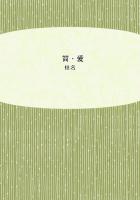VERSE 4. Christ is become of no effect unto you, whosoever of you are justified by the law; ye are fallen from grace.
Paul in this verse discloses that he is not speaking so much of circumcision as the trust which men repose in the outward act. We can hear him say: "I do not condemn the Law in itself; what I condemn is that men seek to be justified by the Law, as if Christ were still to come, or as if He alone were unable to justify sinners. It is this that I condemn, because it makes Christ of no effect. It makes you void of Christ so that Christ is not in you, nor can you be partakers of the knowledge, the spirit, the fellowship, the liberty, the life, or the achievements of Christ. You are completely separated from Him, so much so that He has nothing to do with you any more, or for that matter you with Him." Can anything worse be said against the Law? If you think Christ and the Law can dwell together in your heart, you may be sure that Christ dwells not in your heart. For if Christ is in your heart He neither condemns you, nor does He ever bid you to trust in your own good works. If you know Christ at all, you know that good works do not serve unto righteousness, nor evil works unto condemnation. I do not want to withhold from good works their due praise, nor do I wish to encourage evil works. But when it comes to justification, I say, we must concentrate upon Christ alone, or else we make Him non-effective .You must choose between Christ and the righteousness of the Law. If you choose Christ you are righteous before God. If you stick to the Law, Christ is of no use to you.
VERSE 4. Ye are fallen from grace.
That means you are no longer in the kingdom or condition of grace.
When a person on board ship falls into the sea and is drowned it makes no difference from which end or side of the ship he falls into the water.
Those who fall from grace perish no matter how they go about it. Those who seek to be justified by the Law are fallen from grace and are in grave danger of eternal death. If this holds true in the case of those who seek to be justified by the moral Law, what will become of those, I should like to know, who endeavor to be justified by their own regulations and vows?
They will fall to the very bottom of hell. "Oh, no," they say, "we will fly straight into heaven. If you live according to the rules of Saint Francis, Saint Dominick, Saint Benedict, you will obtain the peace and mercy of God. If you perform the vows of chastity, obedience, etc., you will be rewarded with everlasting life." Let these playthings of the devil go to the place where they came from and listen to what Paul has to say in this verse in accordance with Christ's own teaching: "He that believeth in the Son of God, hath everlasting life; but he that believeth not in the Son shall not see life, but the wrath of God abideth in him."
The words, "Ye are fallen from grace," must not be taken lightly. They are important. To fall from grace means to lose the atonement, the forgiveness of sins, the righteousness, liberty, and life which Jesus has merited for us by His death and resurrection. To lose the grace of God means to gain the wrath and judgment of God, death, the bondage of the devil, and everlasting condemnation.
VERSE 6. For we through the Spirit wait for the hope of righteousness by faith.
Paul concludes the whole matter with the above statement. "You want to be justified by the Law, by circumcision, and by works. We cannot see it. To be justified by such means would make Christ of no value to us. We would be obliged to perform the whole law. We rather through the Spirit wait for the hope of righteousness." The Apostle is not satisfied to say "justified by faith." He adds hope to faith.
Holy Writ speaks of hope in two ways: as the object of the emotion, and hope as the emotion itself. In the first chapter of the Epistle to the Colossians we have an instance of its first use: "For the hope which is laid up for you in heaven," i.e., the thing hoped for. In the sense of emotion we quote the passage from the eighth chapter of the Epistle to the Romans:
"For we are saved by hope." As Paul uses the term "hope" here in writing to the Galatians, we may take it in either of its two meanings. We may understand Paul to say, "We wait in spirit, through faith, for the righteousness that we hope for, which in due time will be revealed to us."
Or we may understand Paul to say: "We wait in Spirit, by faith for righteousness with great hope and desire." True, we are righteous, but our righteousness is not yet revealed; as long as we live here sin stays with us, not to forget the law in our members striving against the law of our mind.
When sin rages in our body and we through the Spirit wrestle against it, then we have cause for hope. We are not yet perfectly righteous. Perfect righteousness is still to be attained. Hence we hope for it.
This is sweet comfort for us. And we are to make use of it in comforting the afflicted. We are to say to them: "Brother, you would like to feel God's favor as you feel your sin. But you are asking too much. Your righteousness rests on something much better than feelings. Wait and hope until it will be revealed to you in the Lord's own time. Don't go by your feelings, but go by the doctrine of faith, which pledges Christ to you."
The question occurs to us, What difference is there between faith and hope? We find it difficult to see any difference. Faith and hope are so closely linked that they cannot be separated. Still there is a difference between them.
First, hope and faith differ in regard to their sources. Faith originates in the understanding, while hope rises in the will.
Secondly, they differ in regard to their functions. Faith says what is to be done. Faith teaches, describes, directs. Hope exhorts the mind to be strong and courageous.
Thirdly, they differ in regard to their objectives. Faith concentrates on the truth. Hope looks to the goodness of God.
Fourthly, they differ in sequence. Faith is the beginning of life before tribulation. (Hebrews 11.) Hope comes later and is born of tribulation.
(Romans 5.)















